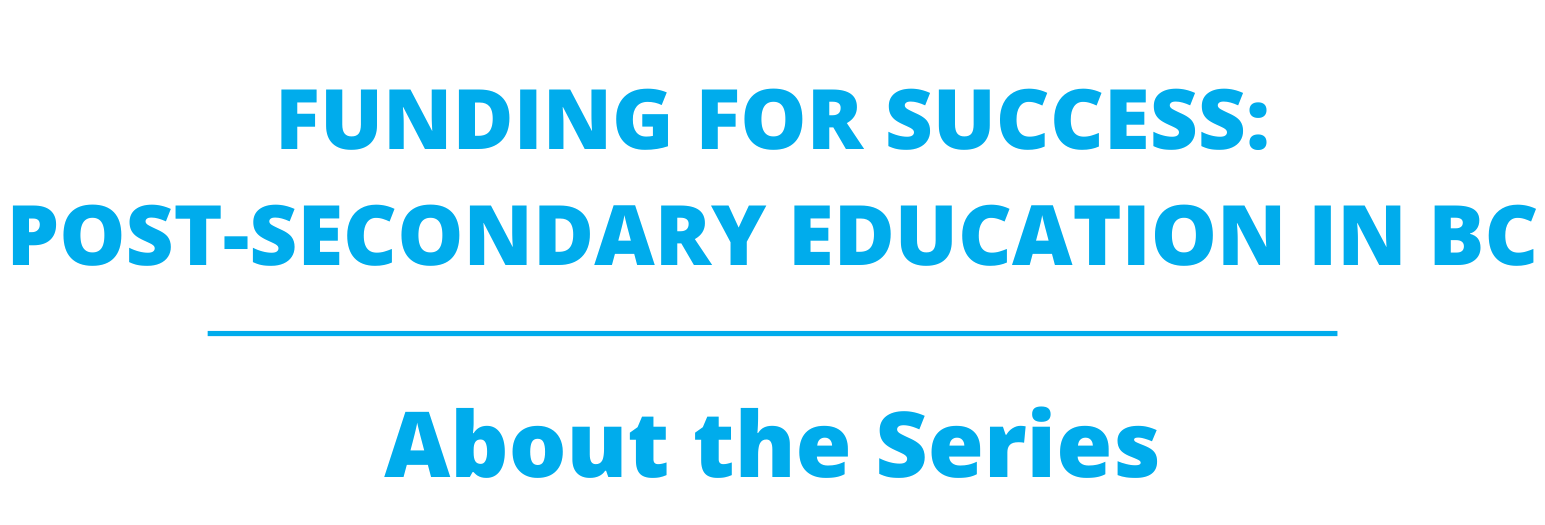
The Confederation of University Faculty Associations of British Columbia (CUFA BC) has produced a six-part series of informational briefs on “Funding for Success: Post-Secondary Education in BC” as part of the provincial post-secondary funding review. These briefs contain rich data about BC’s research universities, which is why we have organized the briefs around specific themes and will release them one week apart over a period of 8 weeks (with a two-week break in December). We will release one brief each week on the following schedule: November 24, December 1, December 8, December 15, January 5, and January 12. A final consolidated brief with references will be released on January 19. Check back on this page for updates!
Post-secondary education in this province is strong and has a proud history of contributing to the social, cultural, and economic well-being of British Columbians. Post-secondary institutions are instrumental in advancing the interests of society and government in areas of human capital development, social mobility, provincial and national reputation, and technological and social innovation. Post-secondary education has become an essential passport to meaningful work.
Faculty and staff at BC’s research universities are the backbone of the academic mission, serving as stewards of the knowledge economy. Supporting the human infrastructure on campus, especially in areas of teaching and research, will be critical to the future success of a strong post-secondary system in this province. This success hinges on the support from government and institutions. Together, these pillars—people, government, and institutions—can meet the talent and skills needs of British Columbians. BC’s research universities will play a significant role in this future.
At CUFA BC, we believe in government policy that is informed by evidence and values that are in the public interest. As the province undertakes a review of the post-secondary funding, there’s an opportunity now to build on the successful legacy of BC’s advanced education by investing in the knowledge and talent economy.
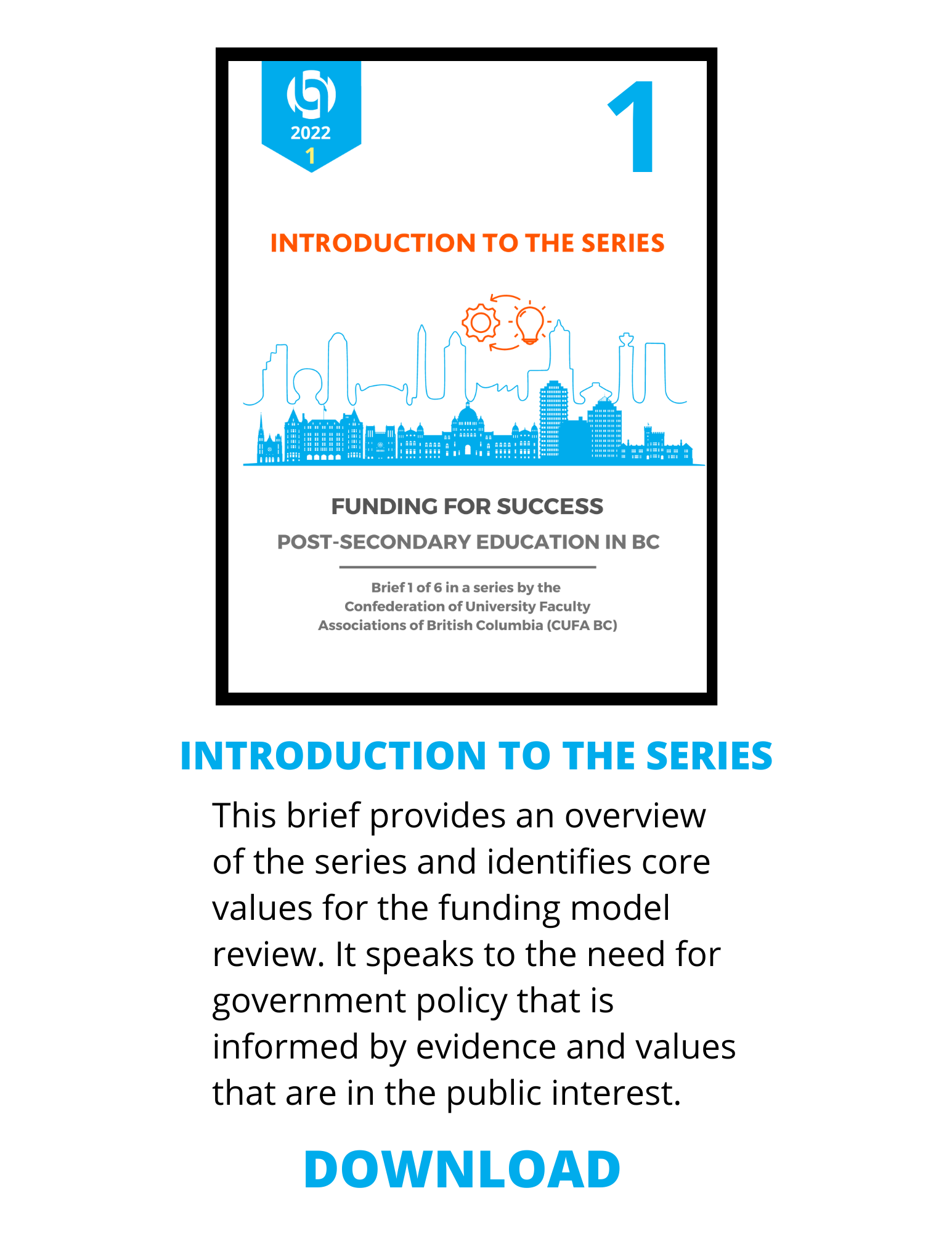 |
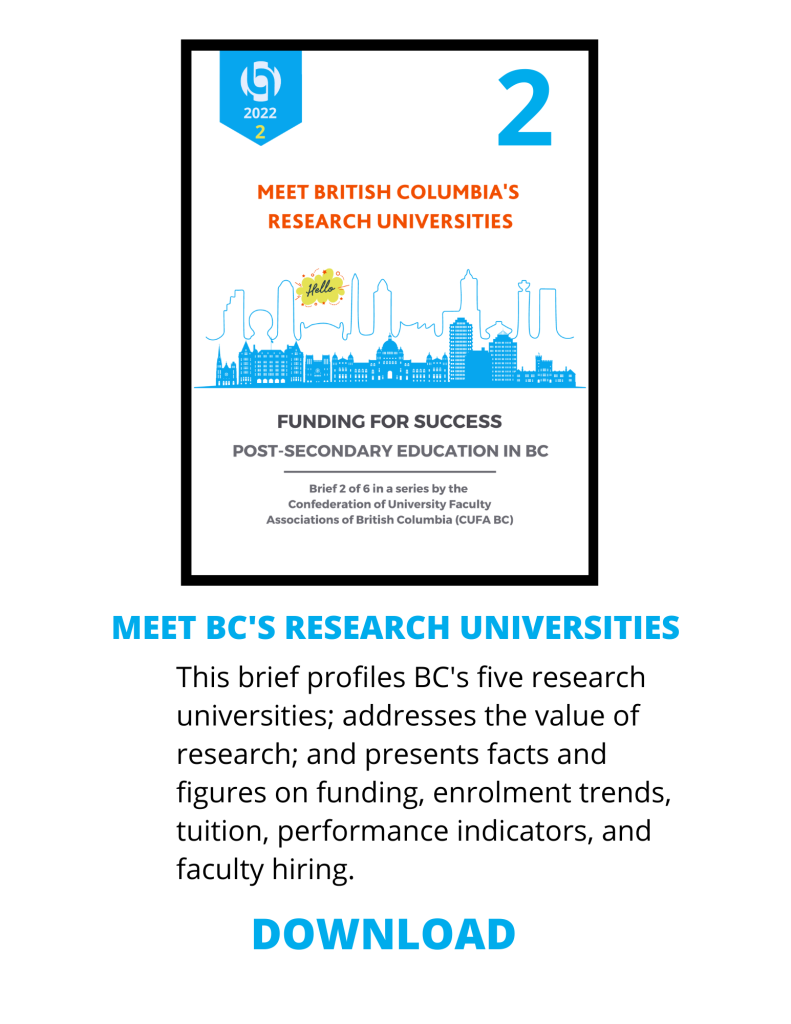 |
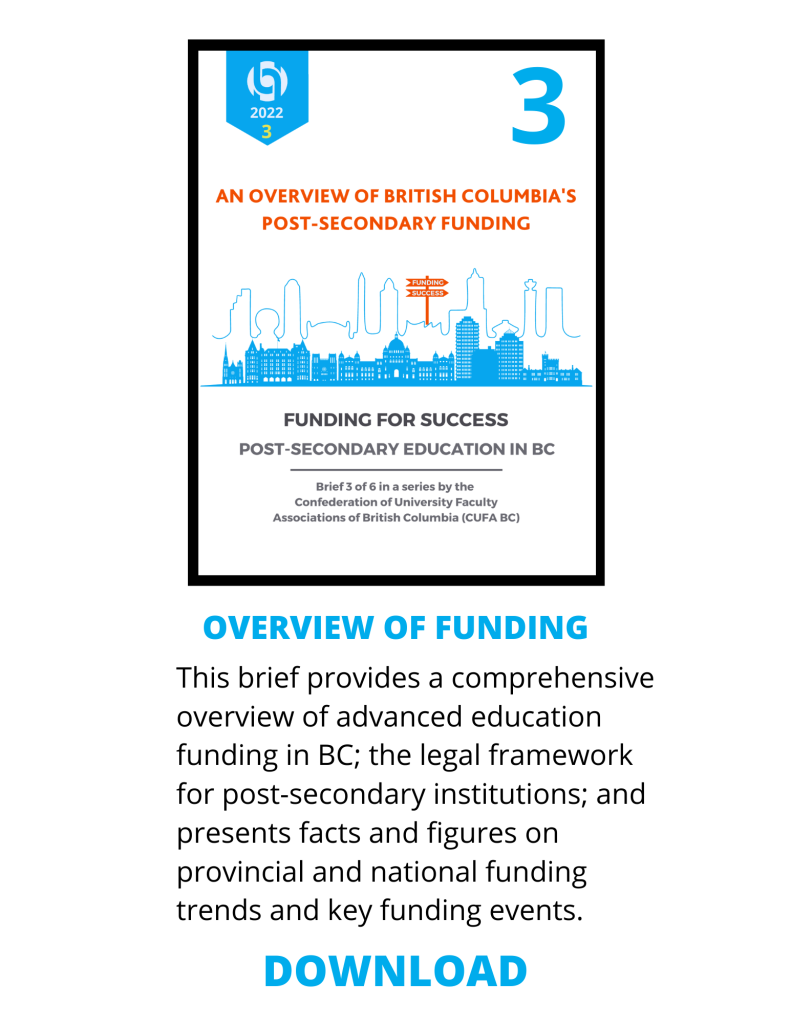 |
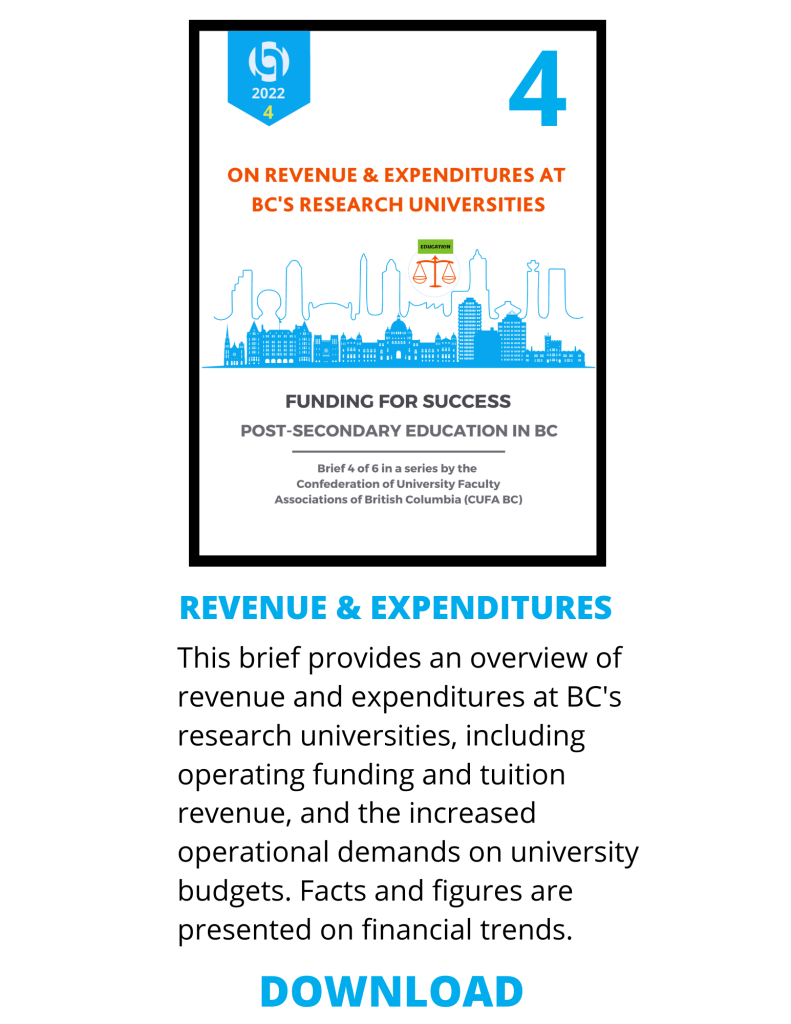 |
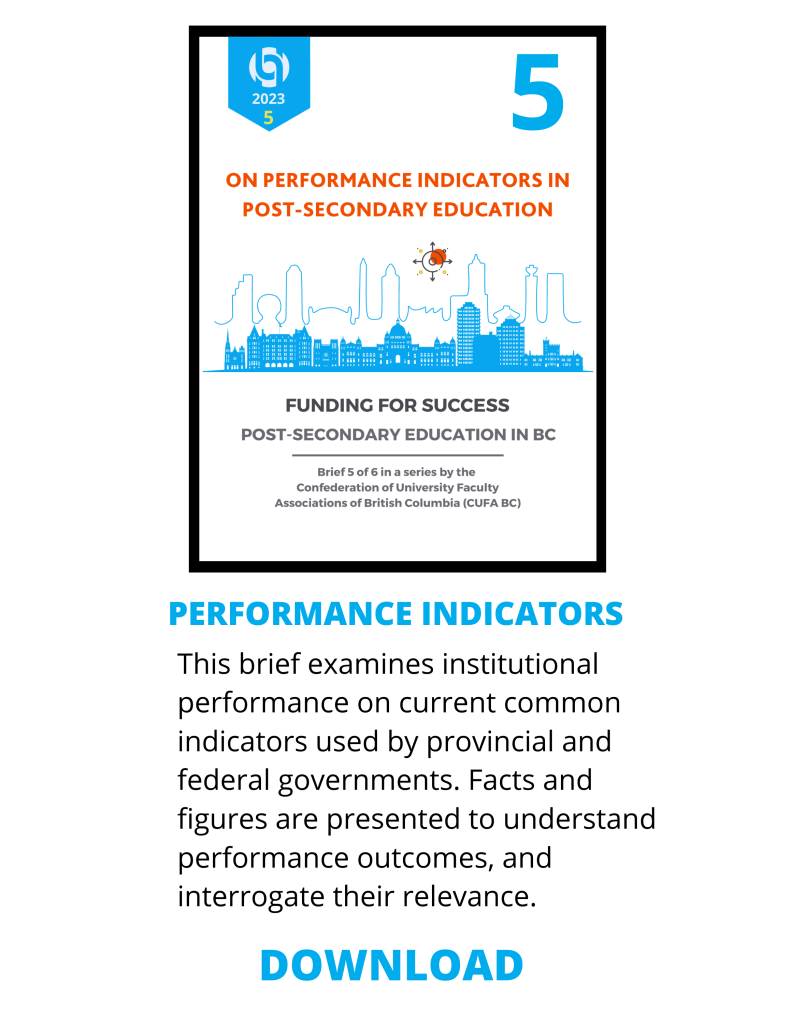 |
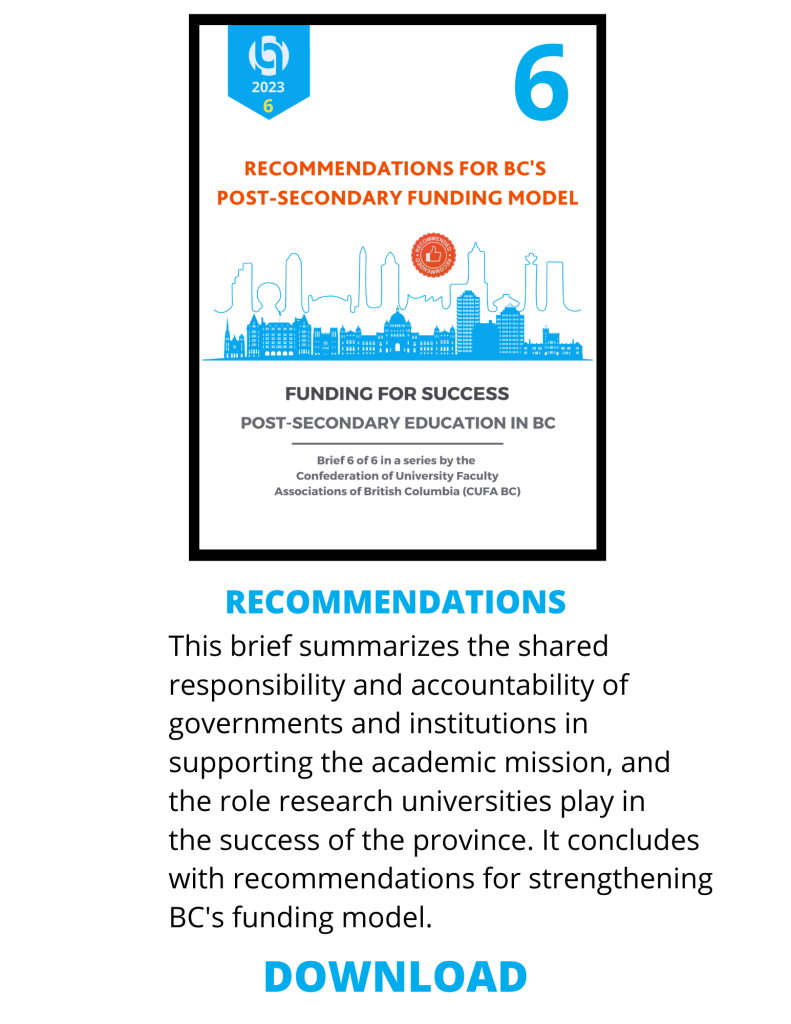 |
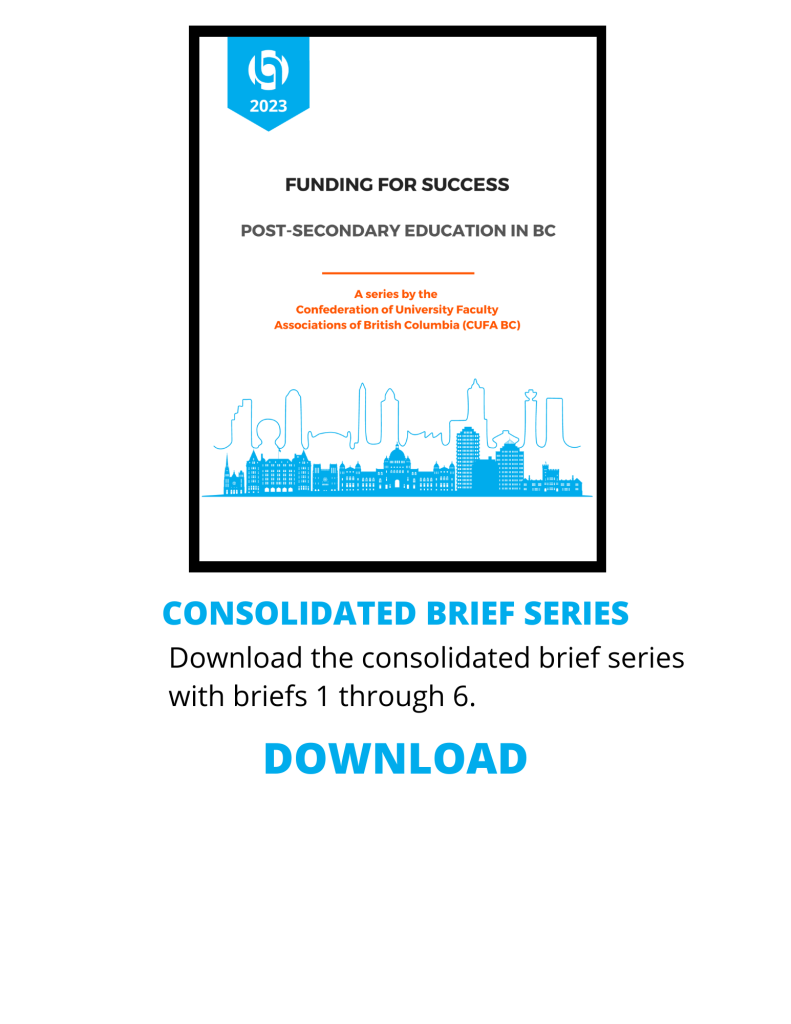 |
